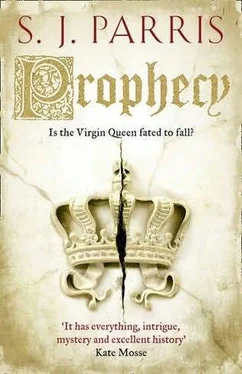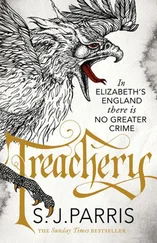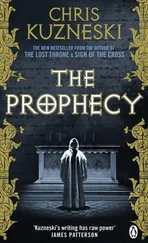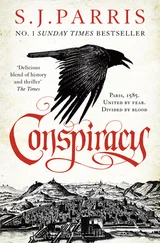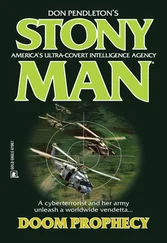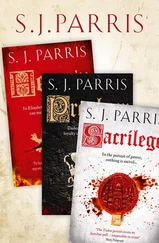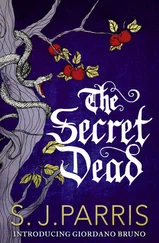‘She says this to appease the Puritans,’ Courcelles whispers at my back. ‘There are plenty in her council who think polyphonic music among the worst sins of Rome.’
I nod, but my attention is on the man now walking up the central aisle towards the dais; short, with brown hair swept back from his forehead and a neatly trimmed beard, only his darting eyes betray a restless energy as he leads the choir — thirty men and twelve boys — towards the alcove in front of the grand window where the musicians had played. This William Byrd is watched around the clock by Walsingham’s agents; he makes no secret of his Catholic faith, and his pos ition as Gentleman of the Chapel Royal only protects him so far. But the fact that Elizabeth not only disregards his religious disobedience but continues to exalt him so publicly is read by some as a sign of ambiguity in her own faith, or merely as an indication that she knows her own mind and will not be bullied by extremists of any faction.
An expectant silence falls over the court as Byrd waits for his choristers to settle themselves in lines. When he is satisfied, he raises both hands and pauses at full stretch, his arms taut as a bowstring; the audience holds its breath and for the space of a heartbeat we all seem suspended in time, caught between one moment and the next. Then Byrd lowers his hands in a sweeping gesture and a note breaks forth from the smallest boy, pure and clear as birdsong, its sweetness echoing to the beams of the roof. Barely has he begun his note when the other voices join him, layering their harmonies piece by piece over one another, the bass notes holding firm and melancholy beneath the soaring, liquid music of the boys’ voices. The song is a prayer for the queen, though the words slide through the melodies like water pouring over a fountain of glass. The effect is so beautiful, so otherworldly, that the hairs on my neck prickle and stand up. I glance sideways at Marie and her expression takes me by surprise; her head is tilted back, her eyes closed, her lips softly parted, as if she is allowing the music to ravish her. Seeing her so seemingly transported, I revise my opinion of her; I had thought her too superficial to be moved by beauty, unless it was her own reflection in a glass. Perhaps I have judged her too harshly. Then I have to look away; there is something so provocative about the curve of her exposed throat, the moistness of her open mouth, her pale eyelids, that I experience a sudden surge of desire that rebels against my will and my better judgement. I cannot allow myself to indulge those thoughts about my host’s wife.
Searching for distraction, I allow my gaze to wander again around the hall, observing the faces, the variety of responses, from immersion to undisguised boredom; suddenly, in the corner of my eye, I am aware of a commotion near the dais. Standing on tiptoe, I am near enough to see that one of the Yeomen of the Palace Guard, evidently in a state of some urgency, has approached Lord Burghley and is whispering frantically in his ear. Edging back, I insinuate myself between Courcelles and Castelnau so that I have a clearer view of Burghley through the heads of the audience. His face is drained of colour; I see him cast around and gesture for Walsingham, a small, tight movement of the hand. Walsingham excuses himself, squeezing past his companions on either side to join Burghley, who draws him close in whispered conference. Eventually Walsingham looks up, his eyes rake the crowd for a moment, and as soon as I catch the frozen expression on his face, I feel a sudden lurch in the stomach, a certainty of horror.
By now several people are turning to look at the source of the disturbance while the singers’ fluting voices still rise to the rafters. Elizabeth herself has noticed and leans forward, hands resting on the arms of her throne, to see who dares interrupt the concert, with a look of irritation that quickly turns to concern as she sees her two senior statesmen huddled with the soldier. Walsingham holds up a hand to her, a gesture that says, Don’t worry, we have this under control. But his face is tight with anxiety and now he raises himself on tiptoe, searching the crowd again, as if he hoped to find someone in particular. Then he leans in to the soldier, whispers some hasty instructions, and the three of them — Burghley, Walsingham and the guard — leave the hall by a side door.
I try to concentrate on the music but the blood is hammering at my temples: the palace guard, his look of fearful urgency; Burghley and Walsingham and their strained expressions. Something terrible has happened, I am certain of it, and try as I might to rein in my worst imaginings, my mind returns again and again to the absence of Abigail among the queen’s maids and the suspicion that someone had been watching our exchange at the Holbein Gate. But I can hardly leave the concert and follow Walsingham; publicly I am no one here, only an insignificant guest of the French ambassador. It is not my place to ask questions. The choir continues its ethereal song; there is a movement, another disturbance, at the other end of the hall, opposite the dais, but when I crane my neck to look, I see that it is only servants bringing in candles, which they fit into wall sconces between the tapestries as the last of the daylight is dying. Then I notice that, behind the servants, armed men have unobtrusively slipped into place either side of the main doors, and still the singing continues. My palms are sweating; I wipe them on my breeches and fix my attention on the choir, but my mouth is dry. Another motet begins and fades to its bittersweet, plaintive close.
‘Giordano Bruno?’
His breath is hot on my cheek, his voice barely audible. In the corner of my vision, a bearded face appears so close to mine that I can’t focus.
‘Don’t turn or speak, sir. In a few minutes, find a moment to slip through the door behind you, as discreetly as you can. Master Secretary’s orders.’
He moves away as invisibly as he arrived, without my even having seen his face fully. I wait until I am sure that Castelnau, Marie and Courcelles have their eyes fixed on the choir and take a short step backwards, then another, until I am hidden by other guests. A side door is built into the panelling; as I approach, the guard there holds it open a fraction and I back through the narrow gap. On the other side, a tall young man, bearded and wearing a black suit, waits for me. He has the appearance of a clerk.
‘This way.’ He gestures to the corridor ahead.
‘Can you tell me what this is about?’
He shakes his head, his mouth set in a grim line, and motions for me to continue down the passageway that leads away from the Great Hall towards a warren of state apartments. When we need to turn a corner, he places a palm lightly on the small of my back to show me the way. At the end of another corridor he stops outside a door and knocks, before ushering me into a small, sparsely furnished office with tall windows. The Earl of Leicester leans against the wall by the window, looking out at the darkening sky as if deep in thought while shadows carve deep hollows around his eyes and the sharp bones of his face; Walsingham paces, one hand clasped across his mouth and chin; Burghley stands by the writing desk, watching the door, his skullcap awry and his white hair sticking up in tufts where he has run his hands through it. Beside him, to my immense surprise, stands the skinny boy who brought me the message from Abigail three days ago. He wipes his hands repeatedly on a streaked apron that suggests he works in the kitchens, and by the look of his face he has been crying. As the guard shuts the door softly behind me, the boy points at me and cries, accusing —
‘That’s him, sir! That’s the man!’
Читать дальше
Конец ознакомительного отрывка
Купить книгу
